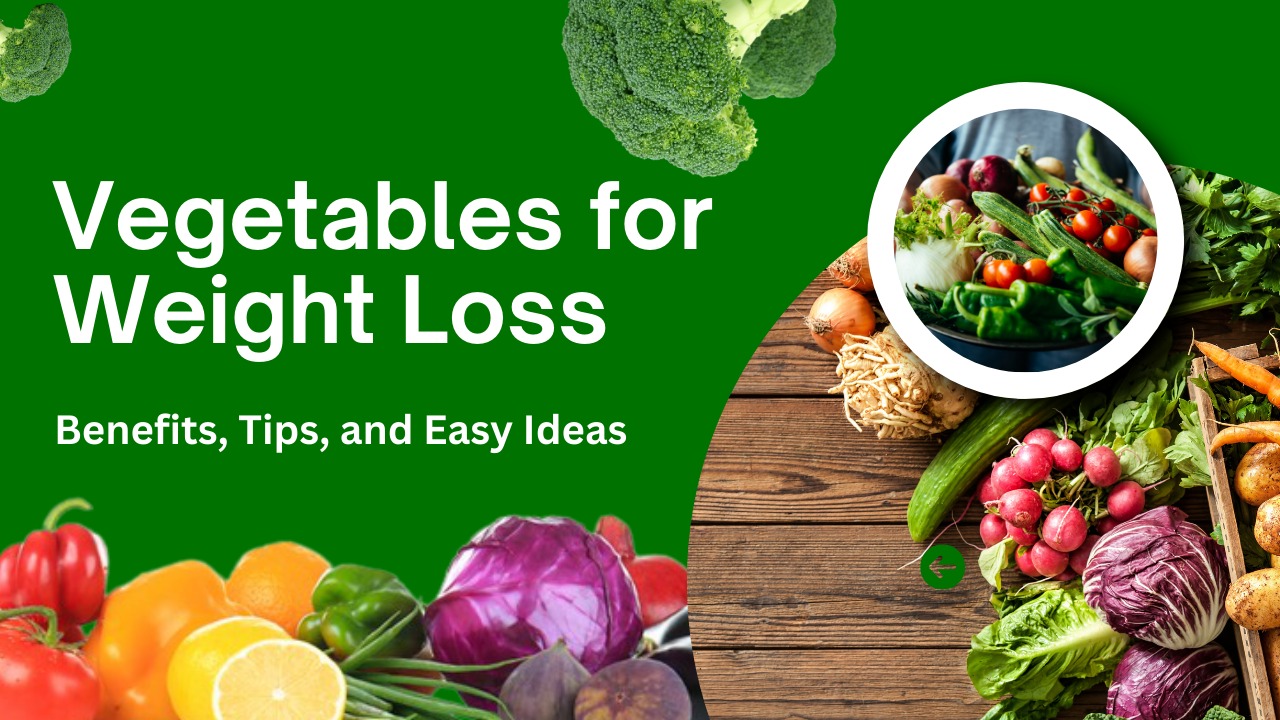When it comes to weight loss, what we eat plays a crucial role. While exercise is essential, the foods you choose can significantly impact your progress. One of the best food groups to include in your diet is vegetables for weight loss. These foods are packed with nutrients that support overall health while helping you achieve your weight loss goals.
Vegetables are low in calories but rich in fiber, vitamins, minerals, and antioxidants. Their high fiber content keeps you feeling full longer, which can help control your appetite and reduce overall calorie intake. Additionally, the vitamins and minerals found in vegetables play an important role in maintaining your body’s optimal function while losing weight.
Including more vegetables for weight loss into your meals is a simple yet effective way to boost your health and enhance your weight loss efforts. They provide essential nutrients while being a low-calorie, high-volume food, making them an ideal choice for anyone aiming to lose weight.
The Role of Vegetables in Weight Loss
Before we jump into specific vegetables, it’s important to understand why they’re so beneficial for weight loss:
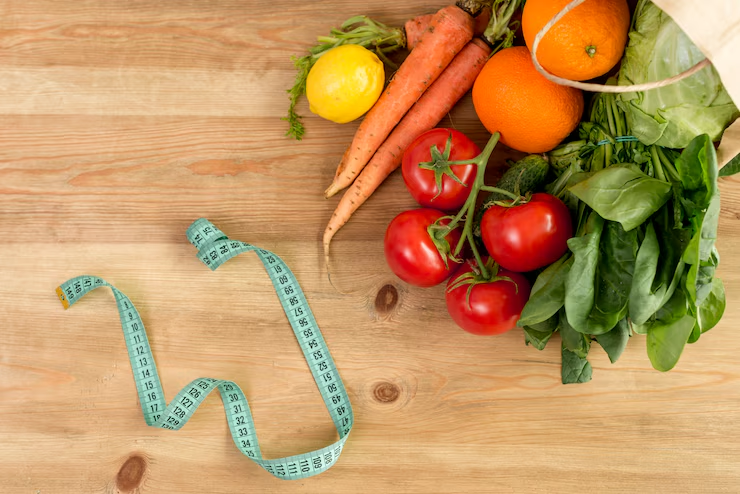
Low Calorie, High Volume
Vegetables for weight loss are an excellent choice because they are low in calories yet high in fiber and water. These qualities allow them to take up more space in your stomach, helping you feel fuller for longer without consuming excessive calories. For example, a large bowl of leafy greens or a plate of roasted vegetables can easily satisfy your hunger while keeping your overall calorie intake low. This makes vegetables an ideal option for anyone looking to lose weight without feeling deprived.
High in Fiber
Fiber is a key component in healthy digestion and plays an important role in managing weight. Many vegetables for weight loss are rich in dietary fiber, which helps regulate your digestive system. Fiber slows down the digestion process, helping to prevent overeating by keeping you feeling full for longer periods. By incorporating fiber-rich vegetables into your diet, you can significantly reduce your overall calorie intake, making it easier to stay on track with your weight loss goals.
Nutrient Dense
One of the reasons vegetables are great for weight loss is because they are packed with essential vitamins, minerals, and antioxidants that support overall health. These nutrients help improve metabolism, support bodily functions, and reduce inflammation, all of which can make it easier to lose weight. By choosing nutrient-dense vegetables for weight loss, you’re not only shedding pounds but also improving your overall health, which is vital for long-term weight management.
Metabolism Boost
Certain vegetables, especially those with high water content like cucumbers, celery, and zucchini, can help boost your metabolism. These vegetables increase hydration, which is essential for promoting the body’s natural fat-burning processes. Some vegetables also contain compounds that help regulate insulin and blood sugar levels, further enhancing your body’s ability to burn fat and lose weight. By adding these vegetables for weight loss to your diet, you can give your metabolism an added boost and help accelerate your weight loss journey.
Low in Glycemic Index
Many vegetables for weight loss have a low glycemic index (GI), which means they don’t cause rapid spikes in blood sugar levels. This is important for maintaining steady energy throughout the day and preventing hunger pangs that can interfere with your weight loss efforts. By choosing low-GI vegetables, you can avoid the crashes in energy that lead to overeating and keep your weight loss plan on track.
Best Vegetables for Weight Loss
Now, let’s take a closer look at some of the best vegetables you can include in your diet to promote weight loss:
1. Spinach
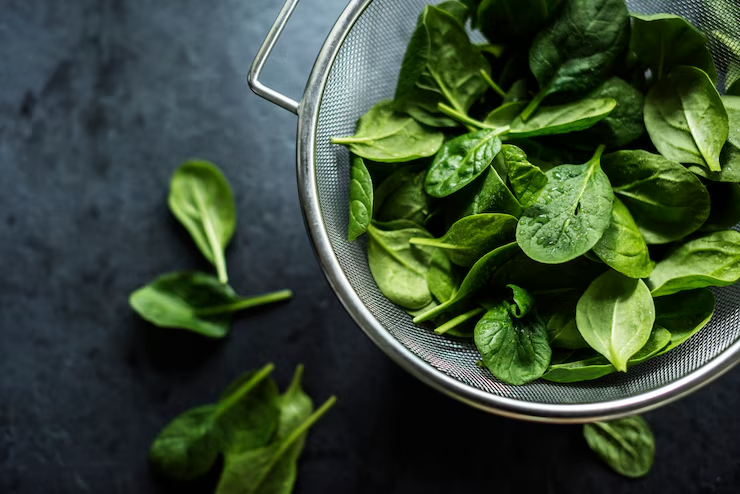
Why It’s Great for Weight Loss: Spinach is one of the best vegetables for weight loss due to its low calorie content and high fiber levels. These qualities make it an excellent choice for anyone looking to lose weight, as it helps keep you full without adding excessive calories. In addition to being low in calories, spinach is loaded with essential nutrients like iron, calcium, and magnesium, all of which are important for maintaining energy levels and supporting muscle function during weight loss.
How It Helps: Spinach is a great vegetable for weight loss because it is low in calories and high in fiber, which promotes satiety and helps control hunger. It is also rich in antioxidants and anti-inflammatory compounds that can help reduce inflammation in the body, making it easier to maintain a healthy weight. Additionally, spinach supports metabolism and muscle function, both of which are crucial when trying to lose weight and build lean muscle mass.
Ways to Enjoy:
Add to smoothies
Toss in salads
Sauté with garlic and olive oil
Mix into omelets or soups
2. Broccoli
Why It’s Great for Weight Loss: Broccoli is one of the top vegetables for weight loss due to its high nutritional value. It is packed with vitamin C, fiber, and folate, making it an excellent addition to any diet. Additionally, broccoli contains a variety of phytochemicals that help promote fat-burning, making it a great choice for anyone looking to shed pounds. Its ability to support overall health while aiding in weight loss makes it a perfect vegetable for anyone on a health-conscious journey.
How It Helps: Broccoli is high in fiber, which helps keep you feeling full for longer, reducing the temptation to overeat and making it easier to manage your calorie intake. It also plays a role in regulating blood sugar levels, which can prevent energy crashes and curb cravings. The rich antioxidants found in broccoli support detoxification, helping to cleanse the body and support metabolic processes, making it a great vegetable for weight loss and overall health.
Ways to Enjoy:
Steamed or roasted as a side dish
Add to stir-fries and casseroles
Blend into smoothies
Toss with olive oil, garlic, and lemon for a simple snack
3. Cauliflower
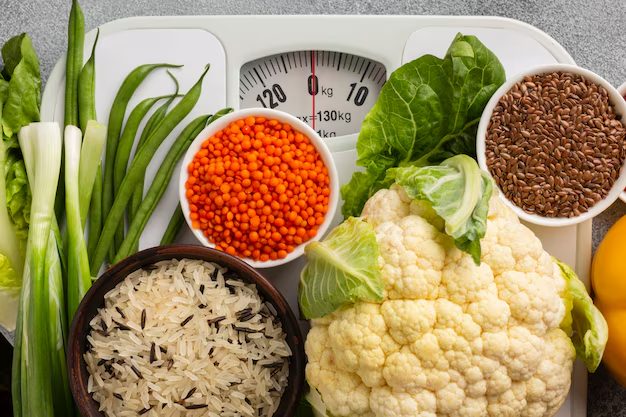
Why It’s Great for Weight Loss: Cauliflower is one of the best vegetables for weight loss, thanks to its low-calorie content and incredible versatility. It can easily be swapped for higher-calorie foods, making it a fantastic option for anyone trying to lose weight without sacrificing flavor or texture. Often used in keto diets, cauliflower can replace foods like rice, mashed potatoes, or even pizza crust, making it a healthy alternative for those looking to cut back on calories and carbs.
How It Helps: Cauliflower is not only low in calories but also high in fiber, which helps keep you full and satisfied for longer, reducing the temptation to overeat. It is naturally gluten-free, making it an excellent choice for those with dietary restrictions. Additionally, cauliflower supports digestion and plays a role in detoxifying the body by helping to flush out toxins. These properties make it a great addition to a weight loss plan and overall health regimen.
Ways to Enjoy:
Roast with spices
Use as a base for cauliflower rice or pizza crust
Mash it as a substitute for mashed potatoes
Add to soups and stews
4. Zucchini
Why It’s Great for Weight Loss: Zucchini is one of the best vegetables for weight loss because it is light, water-rich, and low in calories. It’s packed with vitamins A and C, which are essential for supporting overall health. Zucchini’s high water content not only helps to keep you hydrated but also helps to fill you up, making it a great food to include in your diet if you’re trying to lose weight without feeling deprived of flavor or texture.
How It Helps: Zucchini’s high water content is a key factor in supporting hydration and weight loss. Staying hydrated is essential for metabolism and controlling hunger, and zucchini is an excellent way to achieve both. Its low calorie content makes it a perfect food for snacking without overloading on calories, helping you stick to your weight loss goals. Additionally, zucchini is rich in antioxidants, which help fight inflammation and support overall wellness as you work toward losing weight.
Ways to Enjoy:
Spiralize for zucchini noodles (zoodles)
Grill or sauté with olive oil and garlic
Add to salads and soups
Bake into muffins or fritters
5. Kale
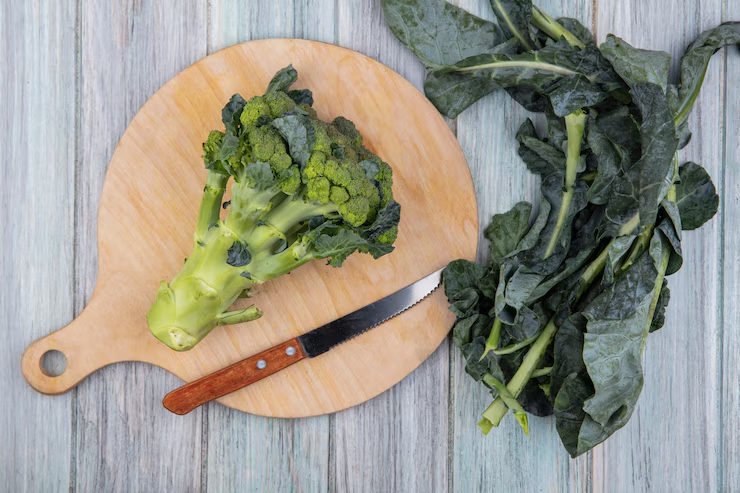
Why It’s Great for Weight Loss: Kale is widely recognized as one of the healthiest vegetables for weight loss due to its impressive nutrient profile. This leafy green is rich in fiber, antioxidants, and a wide range of essential vitamins and minerals that support metabolism and overall health. Its low-calorie content makes it a perfect choice for anyone looking to lose weight while still nourishing their body with powerful nutrients.
How It Helps: Kale is low in calories but high in fiber, which makes it an excellent choice for anyone trying to control their calorie intake while staying full and satisfied. The fiber in kale helps improve digestion, ensuring your digestive system functions optimally, which is essential for weight management. Additionally, kale contains compounds that promote a healthy metabolism and help fight inflammation in the body, both of which are crucial when working toward weight loss. Including this vegetable for weight loss can provide numerous health benefits while supporting your weight loss journey.
Ways to Enjoy:
Toss into salads
Make kale chips by baking with olive oil and salt
Add to smoothies
Sauté with garlic and lemon
7. Bell Peppers
Why It’s Great for Weight Loss: Bell peppers, especially the red, yellow, and orange varieties, are excellent vegetables for weight loss. They are packed with vitamin C, which helps boost immunity, and are loaded with antioxidants that promote overall health. With their low calorie and high fiber content, bell peppers make a perfect addition to any weight loss diet, providing satisfying crunch and flavor without adding excess calories.
How It Helps: Bell peppers are high in fiber, which helps you feel fuller for longer, reducing the urge to snack on unhealthy foods. The antioxidants and vitamins, particularly vitamin C, in bell peppers support a healthy metabolism, aiding in more efficient calorie burning. Their low calorie content also makes them an ideal snack option for those looking to lose weight without feeling deprived. These vegetables for weight loss not only help curb hunger but also boost overall health.
Ways to Enjoy:
Slice for a crunchy snack
Add to salads, stir-fries, or fajitas
Roast or grill with olive oil and herbs
Stuff with lean protein or grains
8. Asparagus
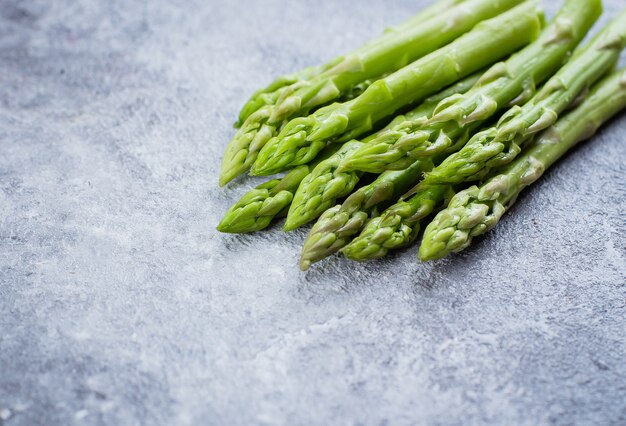
Why It’s Great for Weight Loss: Asparagus is an excellent vegetable for weight loss due to its low calorie content and high fiber levels. It also has a natural diuretic effect, which helps reduce water retention, giving your body a leaner, more toned appearance. Rich in antioxidants, asparagus supports overall health, while its fiber content aids in digestion, making it a great addition to any weight loss plan.
How It Helps: Asparagus helps with weight loss by providing a high fiber content, which helps you feel fuller for longer periods. This reduces the likelihood of overeating and helps control calorie intake. The vegetable’s natural diuretic effect promotes the removal of excess water from the body, reducing bloating and water retention. Additionally, asparagus supports healthy digestion, which is vital for effective weight management, ensuring that your body efficiently processes nutrients and eliminates waste.
Ways to Enjoy:
Grill or roast with olive oil and garlic
Add to salads or pasta dishes
Incorporate into omelets or soups
Tips for Including Vegetables into Your Diet
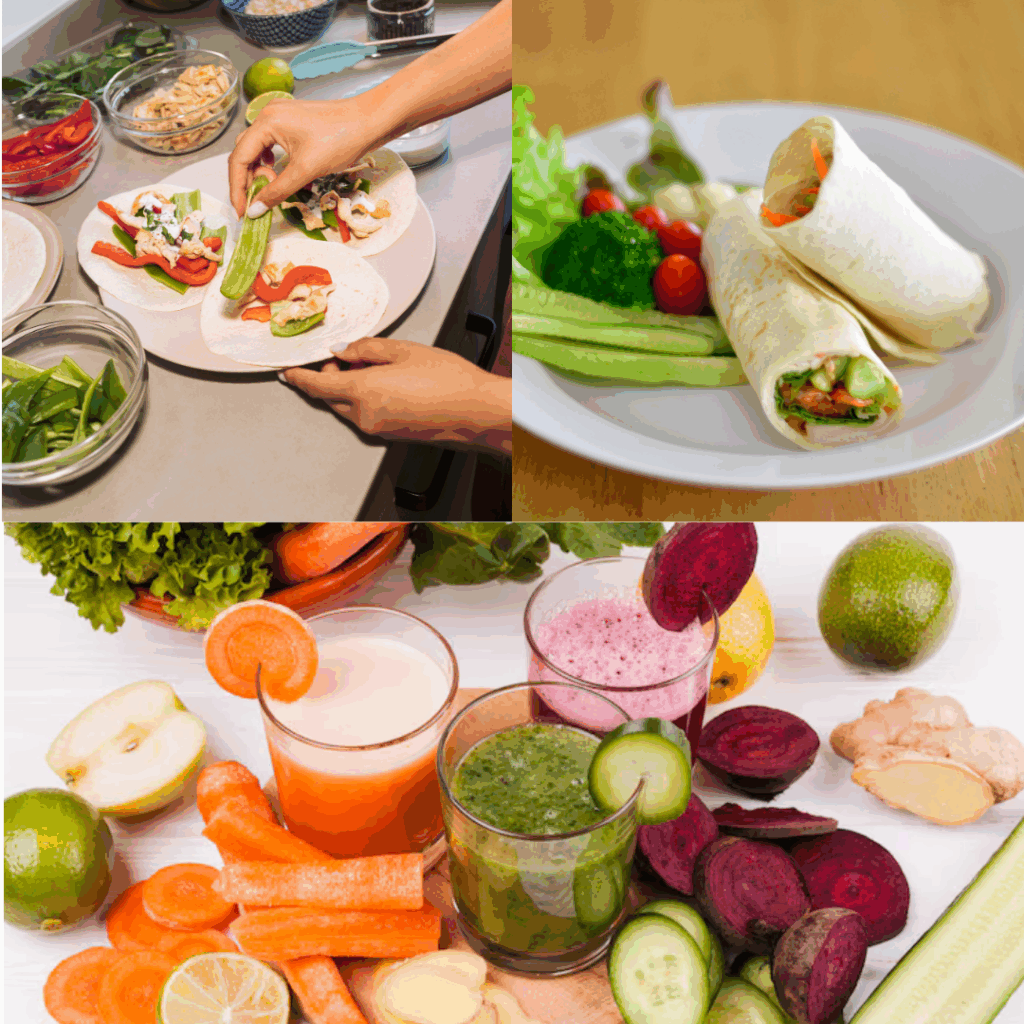
Meal Prepping: One of the easiest ways to incorporate more vegetables for weight loss into your diet is by meal prepping. Start your week by preparing large batches of vegetables, whether by roasting, steaming, or chopping them in advance. This simple step can save you time during busy days and make it easy to add nutritious vegetables to any meal, helping you stay on track with your weight loss goals.
Mix and Match: To keep your meals interesting and full of variety, mix and match different vegetables for weight loss. Combine colorful veggies to create nutrient-packed salads, stir-fries, or soups. Mixing various vegetables not only enhances the flavor but also ensures that you’re getting a wide range of nutrients, making your meals both satisfying and nutritious without the need for high-calorie ingredients.
Snack on Veggies: For a healthy and quick snack, keep cut vegetables like carrots, celery, and bell peppers ready in the fridge. These vegetables for weight loss are not only low in calories but also high in fiber, which helps keep you full between meals. Having them prepared and readily available can curb your cravings and prevent you from reaching for unhealthy snacks.
Use Vegetables as Substitutes: Swap high-calorie foods like pasta, rice, and bread with vegetable-based alternatives to reduce calorie intake. Zucchini noodles (zoodles), cauliflower rice, and lettuce wraps are great options for replacing traditional carbs with nutrient-dense vegetables for weight loss. These substitutes provide the same satisfying texture and taste but with fewer calories, helping you stay on track with your weight loss journey.
Drink Your Veggies: Include leafy greens like spinach and kale into your smoothies for an extra boost of nutrition. These vegetables for weight loss are packed with fiber and vitamins that support overall health. You can also add hydrating vegetables like cucumbers and celery to your smoothies, which not only help with weight loss but also keep you refreshed and hydrated throughout the day.
Conclusion

Adding vegetables for weight loss to your diet is a smart and effective strategy for reaching your health goals. Vegetables are low in calories but packed with fiber, vitamins, and minerals that help support your body’s metabolism and digestion. With so many delicious ways to prepare them, vegetables can easily become a regular part of your meals.
Including a variety of vegetables in your diet can help keep you full longer, reducing the temptation to overeat or snack on unhealthy options. The fiber in vegetables not only aids digestion but also promotes a steady release of energy, preventing blood sugar spikes. Many vegetables also contain antioxidants that help reduce inflammation and support the body’s fat-burning processes.
Making vegetables for weight loss a staple in your daily routine will not only help you shed pounds but also improve your overall health. By enjoying a wide range of nutrient-dense vegetables, you’re taking important steps toward achieving a healthier, more balanced lifestyle.
FAQs
Why are vegetables great for weight loss ?
Vegetables are low in calories but high in fiber and nutrients, making them perfect for weight loss. The fiber helps you feel full longer, reducing the chances of overeating, while the low calorie content allows you to enjoy larger portions without adding extra calories.
How can I incorporate more vegetables into my diet ?
You can add vegetables to every meal by including them in salads, soups, stir-fries, or smoothies. You can also replace high-calorie foods like pasta with vegetable-based alternatives, such as zucchini noodles or cauliflower rice, for a lower-calorie option.
Can I eat as many vegetables as I want for weight loss ?
While vegetables are low in calories, it’s still important to balance them with other food groups. Eating a variety of vegetables alongside proteins and healthy fats ensures you’re getting all the nutrients you need while staying within your calorie goals.
Which vegetables are best for weight loss ?
Leafy greens like spinach, kale, and lettuce, along with high-water vegetables like cucumbers and zucchini, are great choices for weight loss. Cruciferous vegetables like broccoli and cauliflower are also beneficial due to their fiber content and fat-burning properties.
Are there any downsides to eating too many vegetables ?
While vegetables are a healthy and nutrient-rich food, overconsumption can lead to digestive discomfort, especially for those with sensitive stomachs. It’s essential to maintain a balanced diet that includes a variety of food groups for optimal health.
